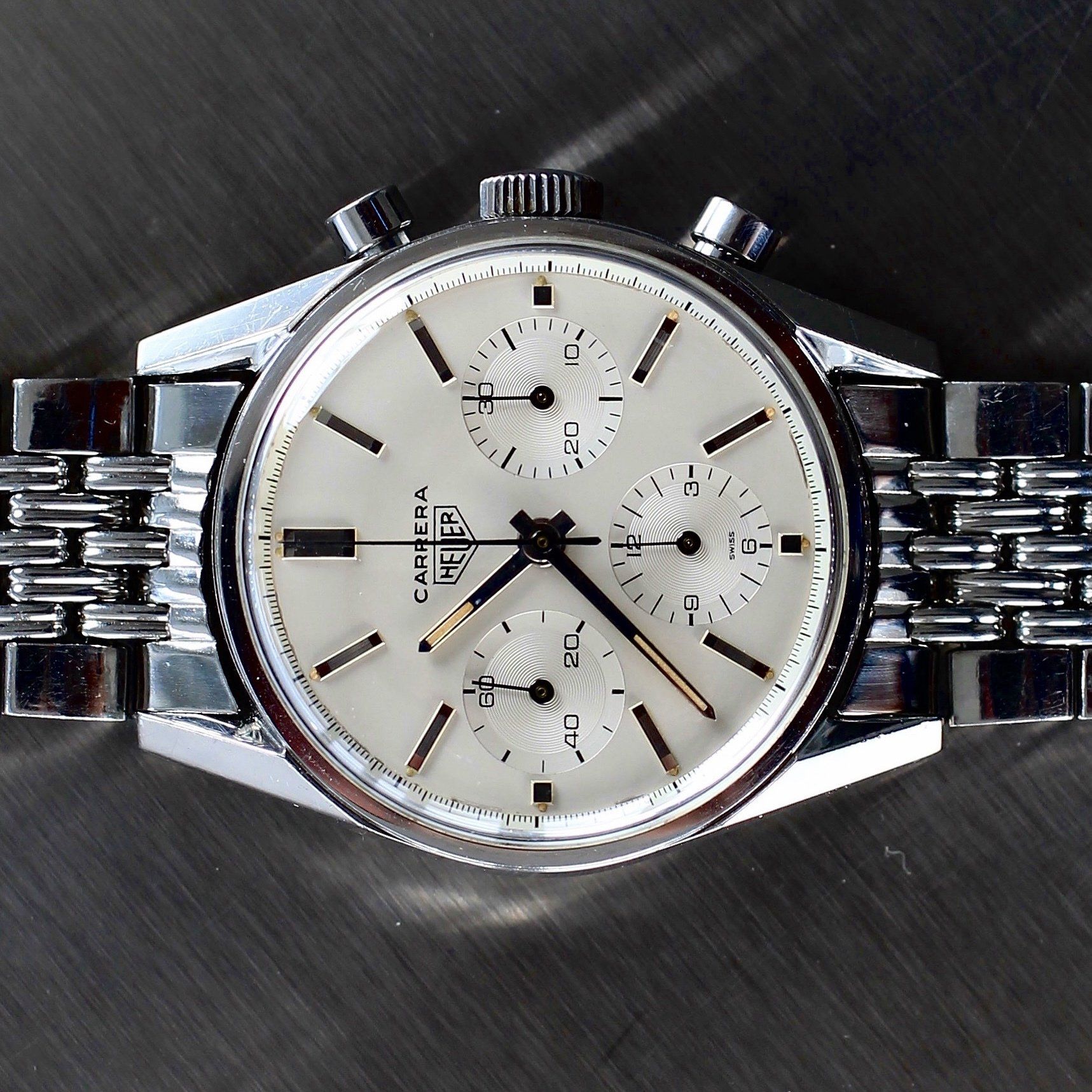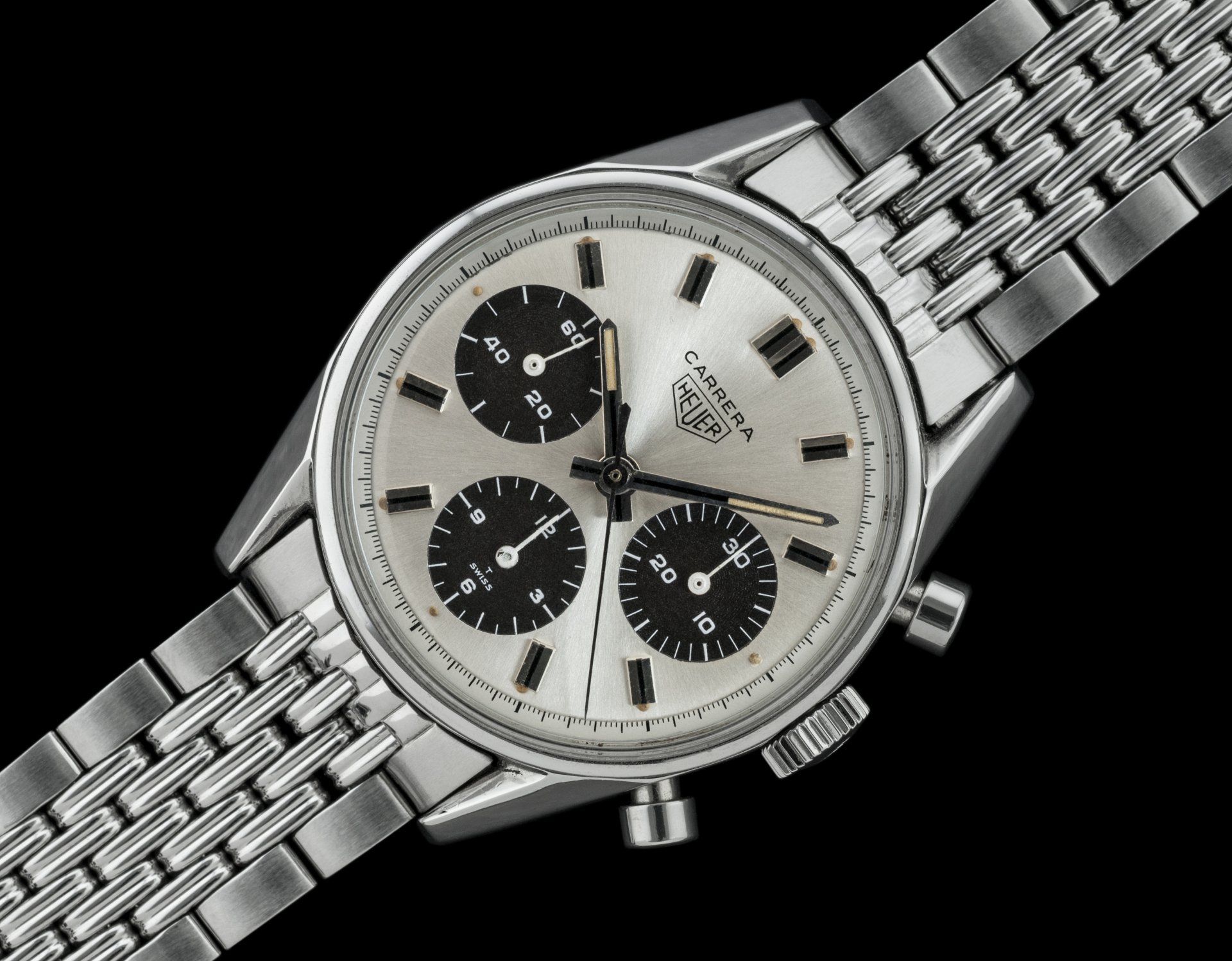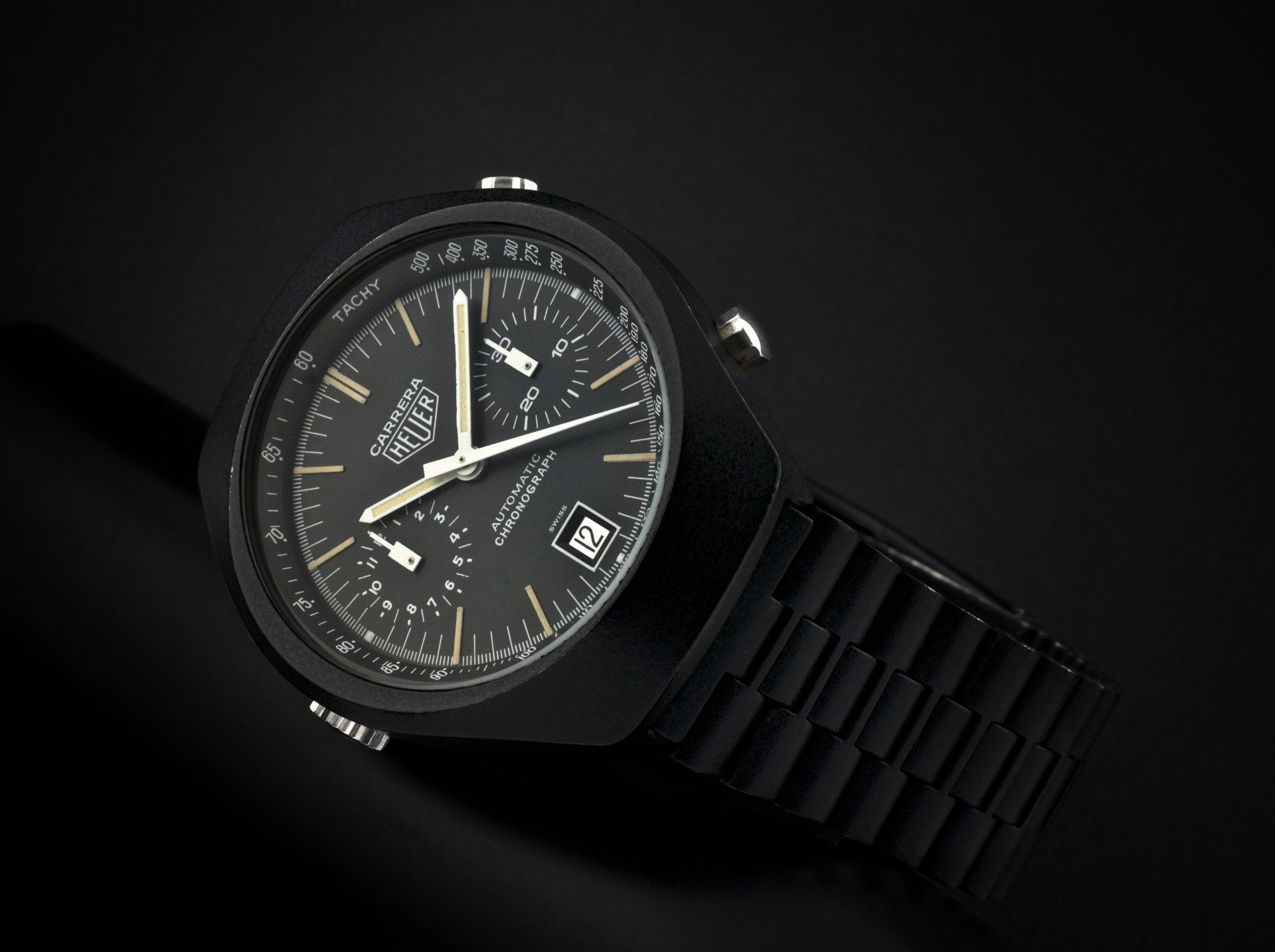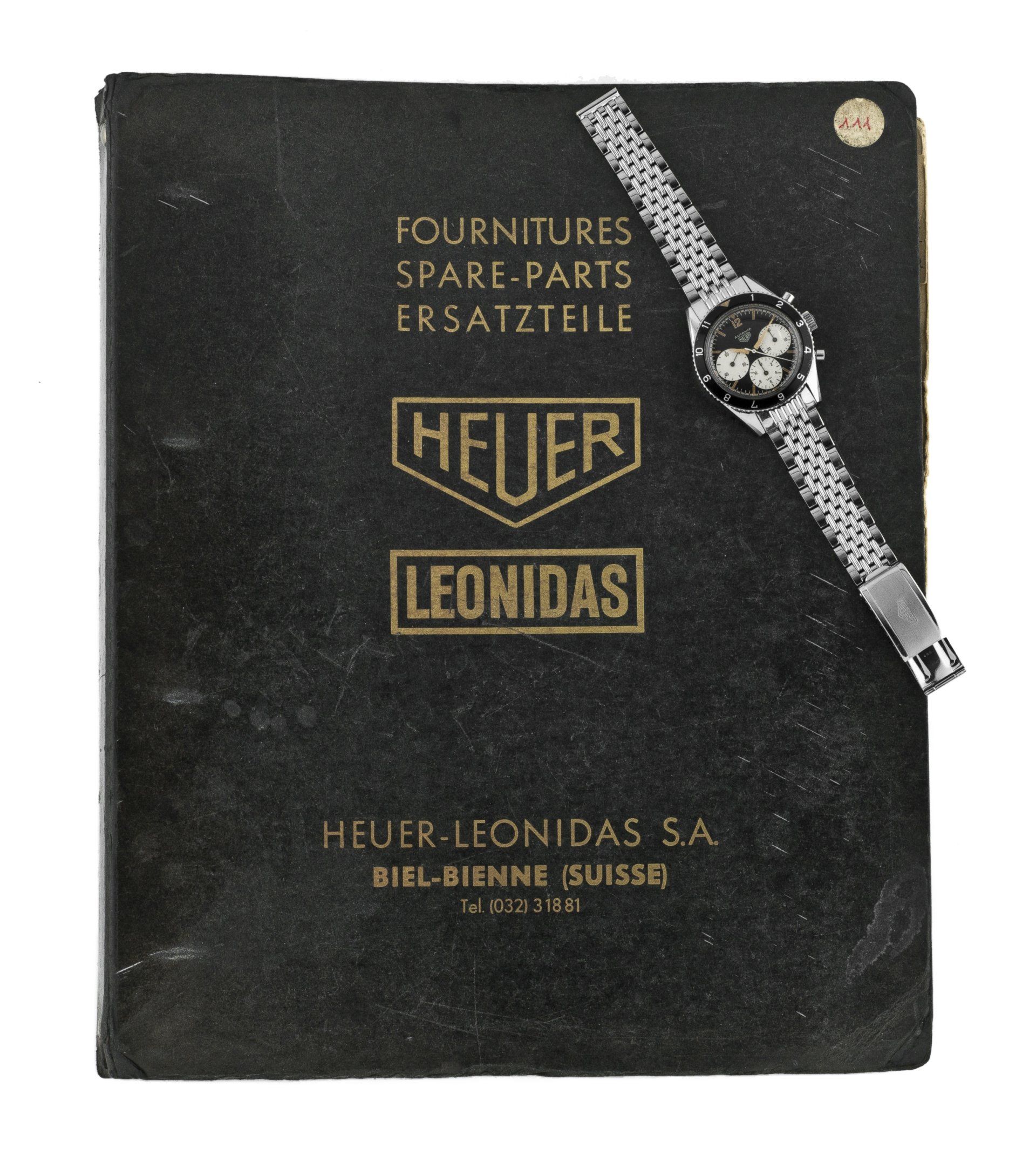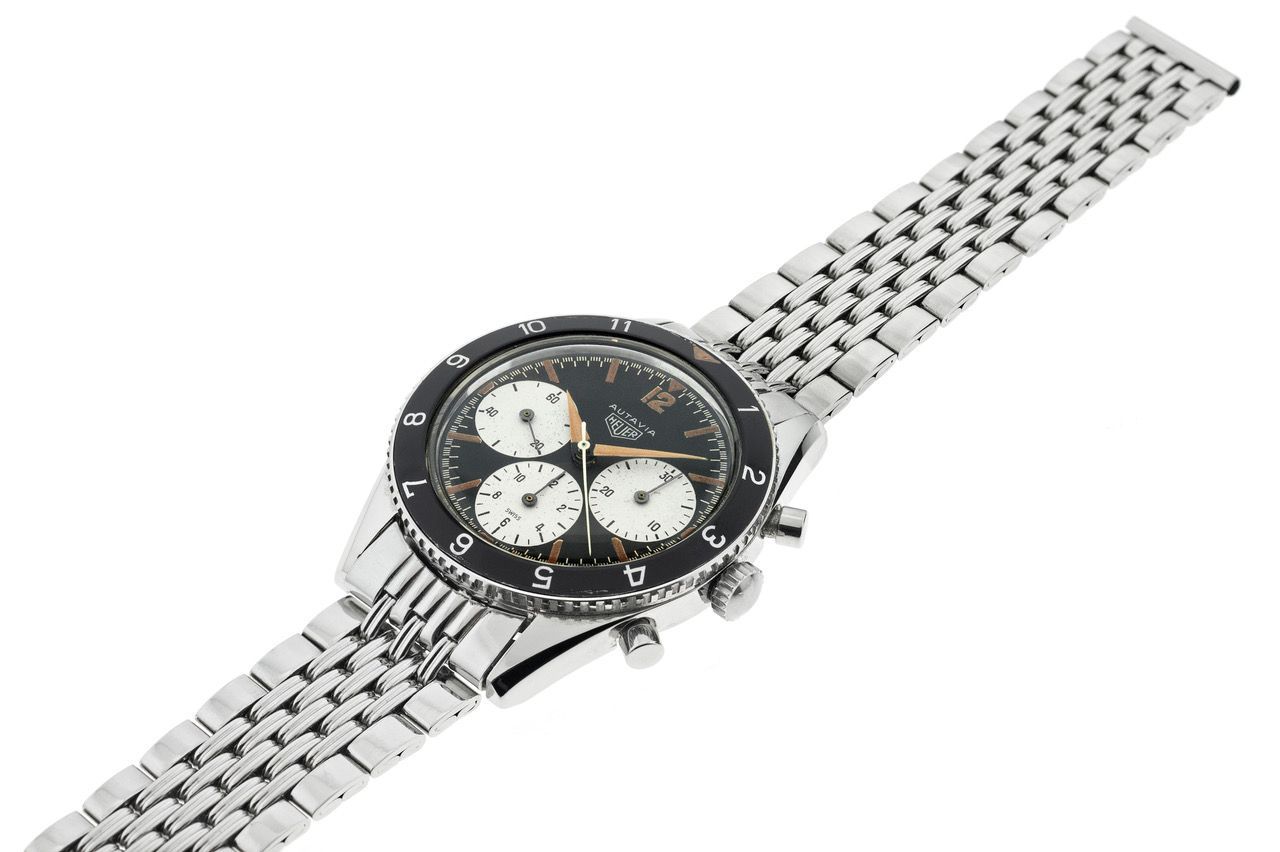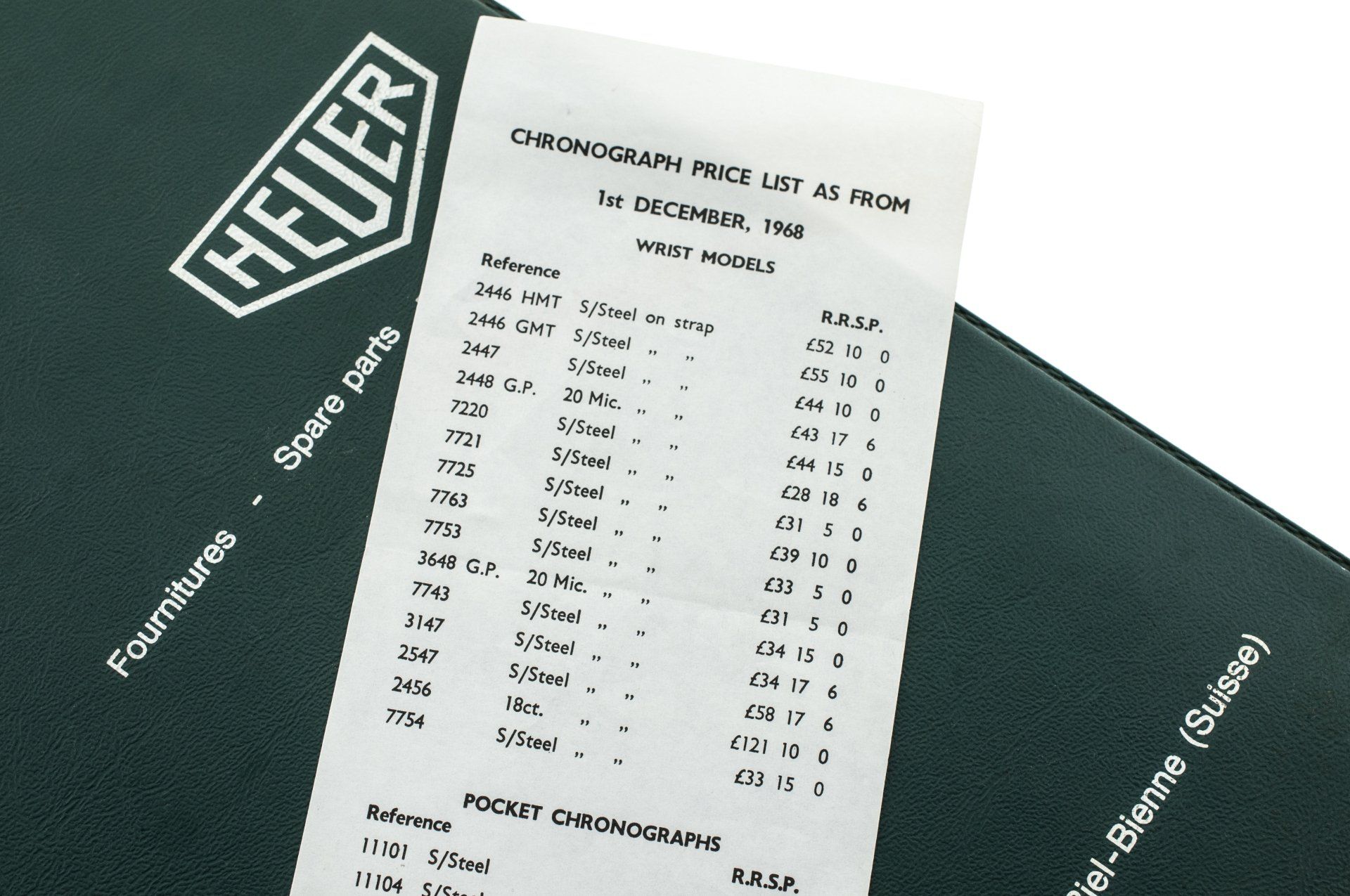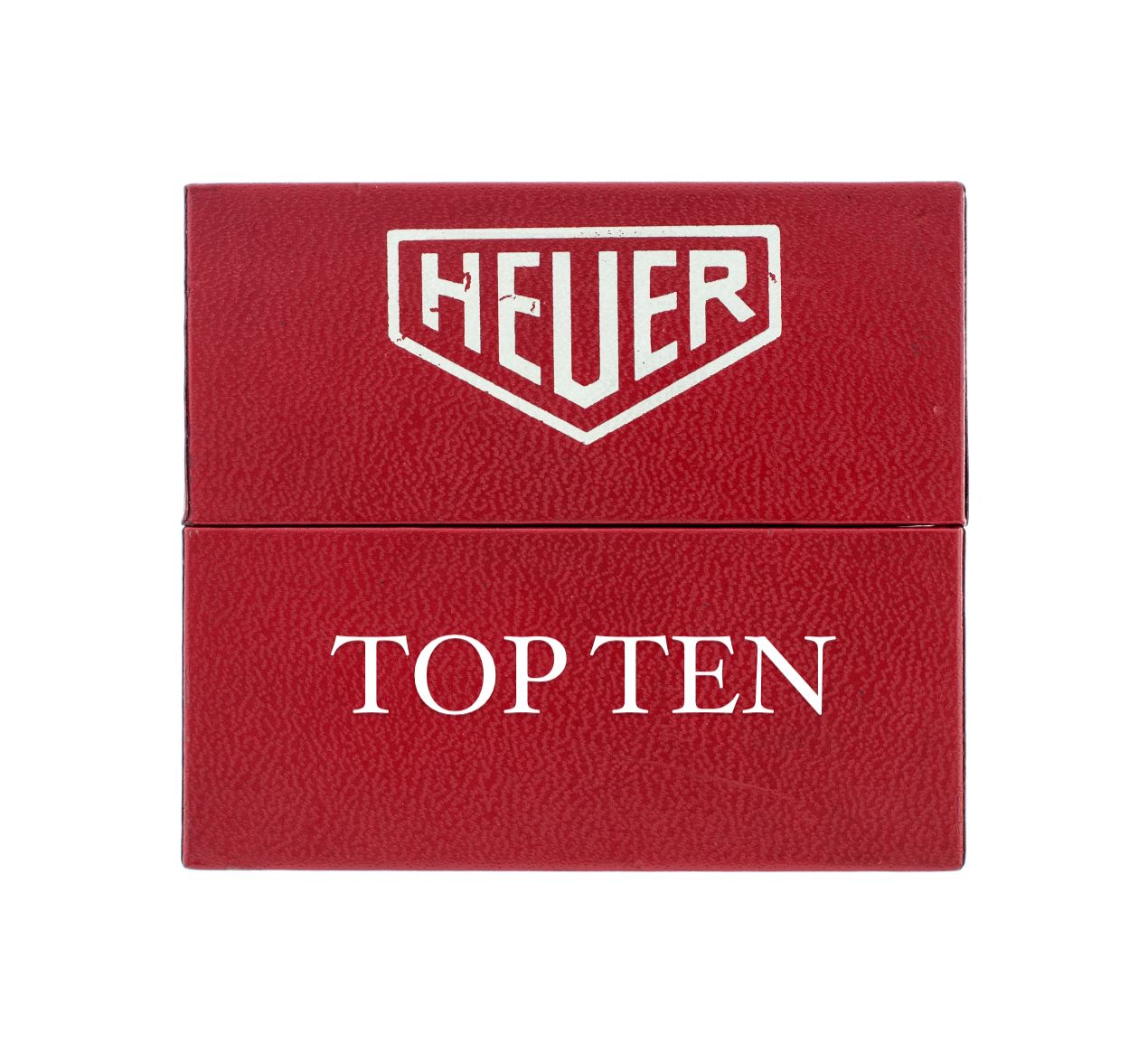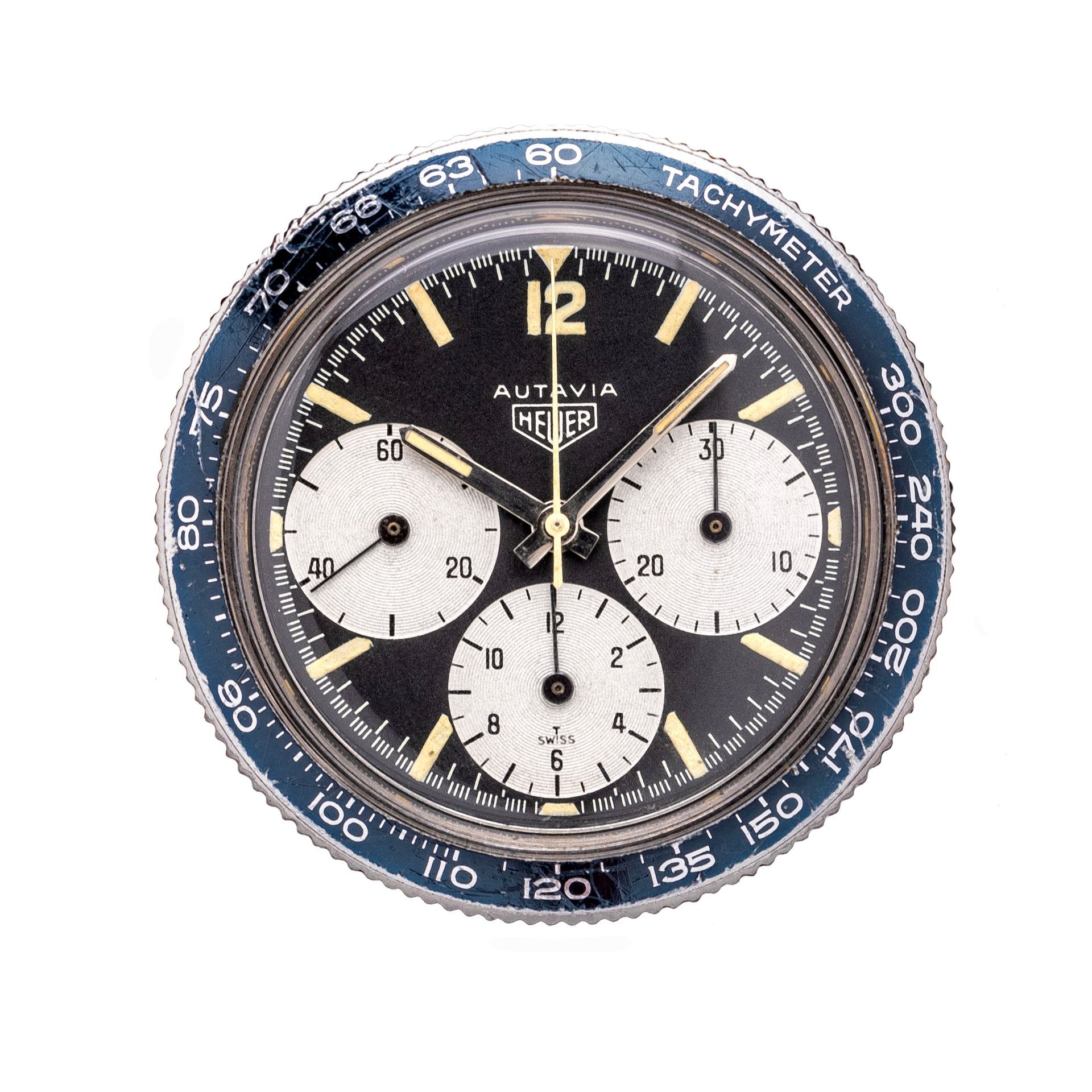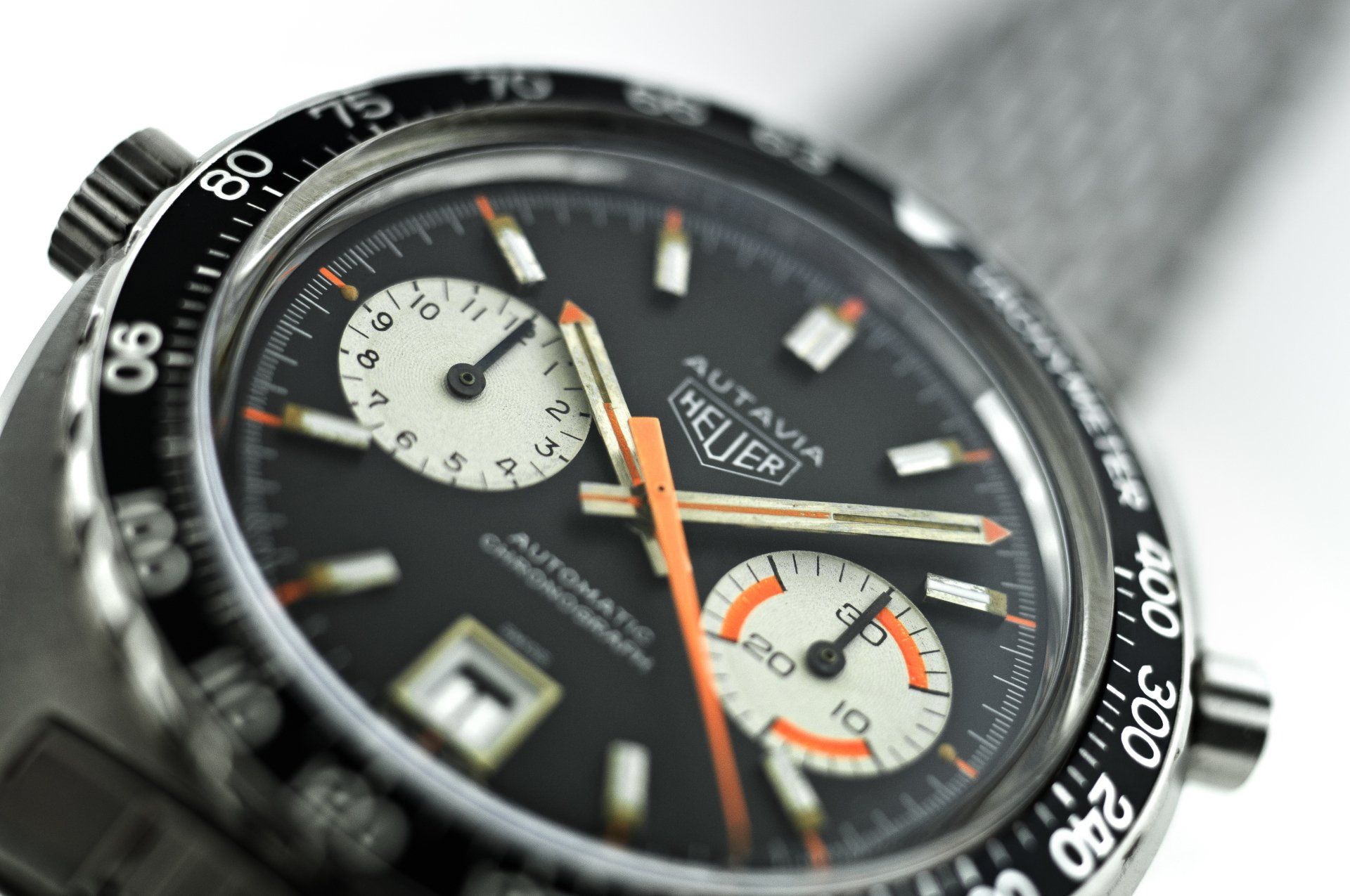The Vintage Heuer Carrera
The very epitome of a classic sports chronograph the vintage Heuer Carrera is as relevant today as it was back in 1963.
The Heuer Carrera chronograph followed a year after the Autavia, in 1963, and had an alternative design ethos to the Autavia. Although it still had its origins in motorsport, it was a simpler and perhaps a more elegant solution with the main differentiator being that it had no bezel.
In 1953, Heuer made a ref 3336 to commemorate the La Carrera Panamericana road race in Mexico. This race was run for the last time in 1954 because, following many fatal accidents, it had become far too dangerous (even for those times). Fast forward to the spring of 1962 and Jack Heuer was attending the 12 Hours of Sebring when he spoke to the parents of the Mexican Rodriguez brothers who were driving for Ferrari. They shared with Jack how thankful they were that their sons had been too young to take part in the Mexican road race and so, unlike others, their lives had been spared. Soon after this discussion, the idea for the Heuer Carrera chronograph was born and the name was duly registered by Heuer.
Jack had a keen eye for design and had attended a watch design course in Switzerland. His aim was to design a clear alternative to the Autavia with a smaller, simpler Piquerez designed case (35.5mm) that would be easier to wear in all environments. The newly designed crystal tension ring allowed a watch with minute divisions inside the crystal but without a bezel, resulting in a simpler dial design.
The initial watches were launched with an eggshell white and matt black finish, priced at $89.50 (2447) and $69.50 (3647). These early examples remain the very definition of the Carrera in its purest form. As production continued, customer demand led Heuer to introduce a staggering selection of dial designs, especially when compared to the relatively small screw-back Autavia and Monaco ranges. The breadth of available options is one reason why you see relatively few of some dial variations in todays market, runs of low hundred units were not unusual. By the end of production in 1970 it had been produced in one, two and three sub registers, some with dates and with different dial colours, finish and scales. You could argue that the first Carrera was the perfect combination of classic elegance and tool watch.
The Carrera ran in various guises, including the cushion case Ferrari 1158CHN, until the TAG (Techniques d’Avant Garde) takeover in 1985, and was even re-introduced in the first series style case in the 1990s. Today it is still in production as a modern TAG Heuer reinterpretation and shows no sign of declining in popularity.
To read more about the vintage Heuer Carrera chronographs click on the link below to preview the Heuer Carrera 1963-85 book, which is filled with beautiful photographs and important collector info.
Note: Please do not reproduce these images without permission.
